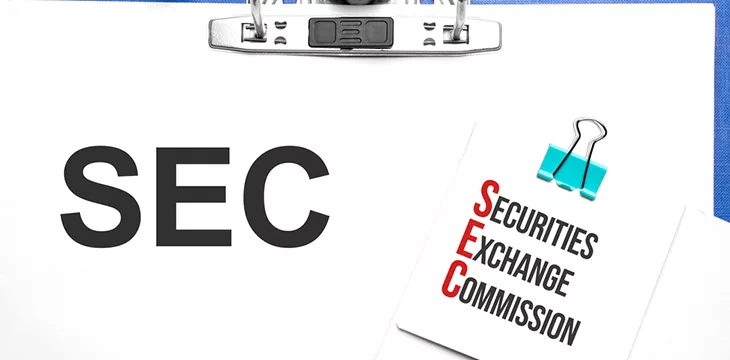|
Getting your Trinity Audio player ready...
|
In a recent interview with Bloomberg, Securities and Exchange Commission (SEC) Chairman Gary Gensler expressed concerns about artificial intelligence (AI) and its potential to wreak havoc in the financial markets.
Calling AI the “most transformative technology of this generation,” Gensler said that, unlike digital currencies and tokens, it warrants the hype. He expressed concern that AI could give financial advice, lead to conflicts of interest, and obscure who’s at fault when things go wrong. Since trillions of dollars trade on the markets the SEC oversees, it’s only natural that AI would be at the forefront of Gensler’s mind.
When he was teaching at the Massachusetts Institute of Technology (MIT), Gensler published a paper, ‘Deep Learning and Financial Stability,’ outlining some of the risks that deep learning specifically poses to financial markets and the wider system. In it, Gensler and his co-author argued that existing financial regulations aren’t capable of dealing with the changes ahead.
What sort of dangers could AI pose to the financial system? Gensler outlined a number in his paper.
“These models, whether intentionally or unintentionally, will coordinate and communicate with each other to optimize results,” he wrote.
It’s also possible that such models could lead to more extreme volatility and even financial collapses.
Under Gensler, the SEC has already proposed rules for AI. Among them is the need for firms to identify and root out conflicts of interest. They’ll likely be voted on in 2024.
SEC is not turning down the heat on digital currencies
While Gensler said that AI will take center stage at the SEC, this does not mean the agency will be turning down the heat on digital currency and blockchain projects.
To the contrary, Gensler told Bloomberg the industry is rife with scams and fraud. He said investors should not assume they are getting the same protections they would with other securities.
“The platforms and intermediaries are doing things that we would never in a day allow or think the New York Stock Exchange of Nasdaq would do,” he warned. That list includes countertrading customers, commingling funds, and having market makers take the other side of trades.
Last month, the SEC asked for a budget increase to handle all the risks in the industry, signaling that, while AI may take priority, it has no intention of letting up on its digital currency crackdowns.
Blockchain technology can help with Gensler’s concerns
Gensler is busy taking on the bad actors in the cryptocurrency industry and thinking about the risks AI poses to financial stability, but the solution, or at least part of it, is right under his nose.
While both digital currencies and AI will require new rules and regulations to deal with the changes they bring about, blockchain technology can help track, trace, and regulate activity in all markets. With timestamped records of who did what, where, and when, a culture of accountability can be created in both the development of AI and its application in financial markets and elsewhere.
“Bitcoin is a distributed timestamp server,” its inventor, Dr. Craig Wright, has repeatedly said. While many of the benefits of a transparent, public database are lost when layer-two scaling solutions are used, the original Bitcoin blockchain requires no such scaling ‘solutions’ and can be used to help regulators like the SEC figure out both how AI is being developed, how different models are interacting, and how it is being used and applied.
While the records of trading houses and the decisions their AI models make would not be visible to the public on such ledgers, they could be accessed by the SEC and other regulators during compliance audits and investigations into trades. Unlike private blockchains, any single party can’t alter public proof-of-work ones, so there would be undeniable records of what occurred, helping the SEC prove when foul play and regulatory breaches have occurred.
It’s highly unlikely that Gensler is ignorant of this use case for blockchain. After all, he taught a course on it at MIT. Is it possible that the SEC would mandate that brokerages, trading firms, and others using AI have to use a public blockchain to keep records of their activities? It might be a bit too soon for that, but it is one potential outcome, and if so, there’s only one blockchain capable of doing the job at scale—the original BSV blockchain.
In order for artificial intelligence (AI) to work right within the law and thrive in the face of growing challenges, it needs to integrate an enterprise blockchain system that ensures data input quality and ownership—allowing it to keep data safe while also guaranteeing the immutability of data. Check out CoinGeek’s coverage on this emerging tech to learn more why Enterprise blockchain will be the backbone of AI.
Watch: It’s time for regulation to enable blockchain growth

 07-03-2025
07-03-2025 





